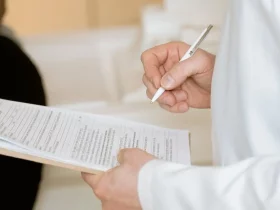If you have a qualifying medical condition, getting a medical marijuana card may help. A cannabis card allows you to save on sales taxes and purchase a more extensive variety of high-quality cannabis products. The state of Iowa still has strict standards for the medical marijuana program. It only allows patients to possess prepared cannabis products, and only two manufacturers are allowed. Home cultivation is not permitted, and promotion of weed can result in a felony conviction.
Talk to Your Doctor
Many people who use medical marijuana do not discuss it with their primary care physician. These patients may be embarrassed, worried about a stigma, what their PCPs might think or say, what could happen to their license, or fearful of losing access to health insurance and medical care. A combination of education, awareness, policy, and attitudinal changes have contributed to this lack of dialogue between physicians and patients about cannabis. In addition, some nursing and medical schools must adequately prepare students for the topic. When discussing cannabis with your doctor, be clear about what you want to learn. Your physician might only have a little time to talk, so writing down the most important questions and areas you want to cover beforehand is helpful.
Get a Medical Marijuana Card
If you suffer from an illness on the state’s list of qualifying conditions, your doctor will issue you a medical marijuana in Iowa certification. This will serve as proof that your condition meets the program requirements and is severe enough to be treated with marijuana. Once you receive your medical marijuana certificate, you’ll need to submit it to the state along with a patient registration application. You can also designate a designated caregiver to apply on your behalf. The process for obtaining a medical marijuana card is relatively quick and straightforward. All patients must undergo an evaluation by a certified physician before applying. A qualified telehealth physician will review your medical history, diagnoses, and symptoms in real time over the phone or webcam. Then, your telehealth physician will discuss the available options that could help treat your illness with medical marijuana. Once you complete your medical marijuana evaluation, you’ll have 24 to 48 hours to receive your PDF certificate via email. You’ll then be able to visit a dispensary and purchase cannabis products. In addition, it’s important to note that having a medical marijuana certificate does not exempt you from federal employee drug testing. It’s best to speak with an attorney if you plan on using medical marijuana and want protection from company drug tests.
Visit a Dispensary
While recreational marijuana is still illegal statewide, medical cannabis users do not face the same legal consequences. Once a patient is registered with the state, they can legally obtain cannabis products at one of Iowa’s five licensed dispensaries. The state limits how much THC a user can purchase in 90 days, but patients can apply for a waiver. When visiting a dispensary, bring your medical cannabis registration card and ID. The dispensary will log your purchases and provide you with a receipt. If you can’t visit, your physician can designate a caregiver to act on your behalf. Caregivers must register for a medical marijuana card as well.
Medical marijuana is available in a variety of forms, including capsules, tinctures, lotions, and edibles. Patients can choose from a variety of different THC and CBD ratios, including 20:1, 10:1, 5:1, and 1:1. Choosing the correct dosage can be difficult, and a knowledgeable consultant at the dispensary can help you find the right product for your needs. While the process varies by state, finding a dispensary that offers high-quality products and excellent customer service is essential. Some states also require that a lab test the products sold at a dispensary to ensure quality, consistency, and safety. Each dispensary sets the cost of medical cannabis, but it can be cheaper than most prescription drugs.
Stay Active
Although Iowa’s medical marijuana program is more limited than those in other states, it does allow patients to obtain cannabis oil, which can be taken orally. However, the state’s law restricts the THC content to no more than 10 percent. The THC limit is intended to protect users from federal prosecution since the drug is still categorized as a Schedule I substance under federal law. As a result, many doctors are reluctant to certify patients for the program. The Iowa Medical Society has warned doctors that they could face legal or insurance problems if they participate in the state’s medical marijuana program. The group notes that federal law still prohibits marijuana use, and it’s likely a positive drug test would trigger a wrongful termination lawsuit. Nurse practitioners may be the most important group to help patients navigate Iowa’s new marijuana law because they have prescriptive authority in most states. A recently published study found that NPs who completed a two-hour continuing education module about cannabis experienced an increase in knowledge, confidence, and willingness to communicate with patients about it. The program covered areas such as drug-drug interactions and pharmacokinetics.










Hello!! My name is Annabella
I love to eat, travel, and eat some more! I am married to the man of my dreams and have a beautiful little girl whose smiles can brighten anyone’s day!